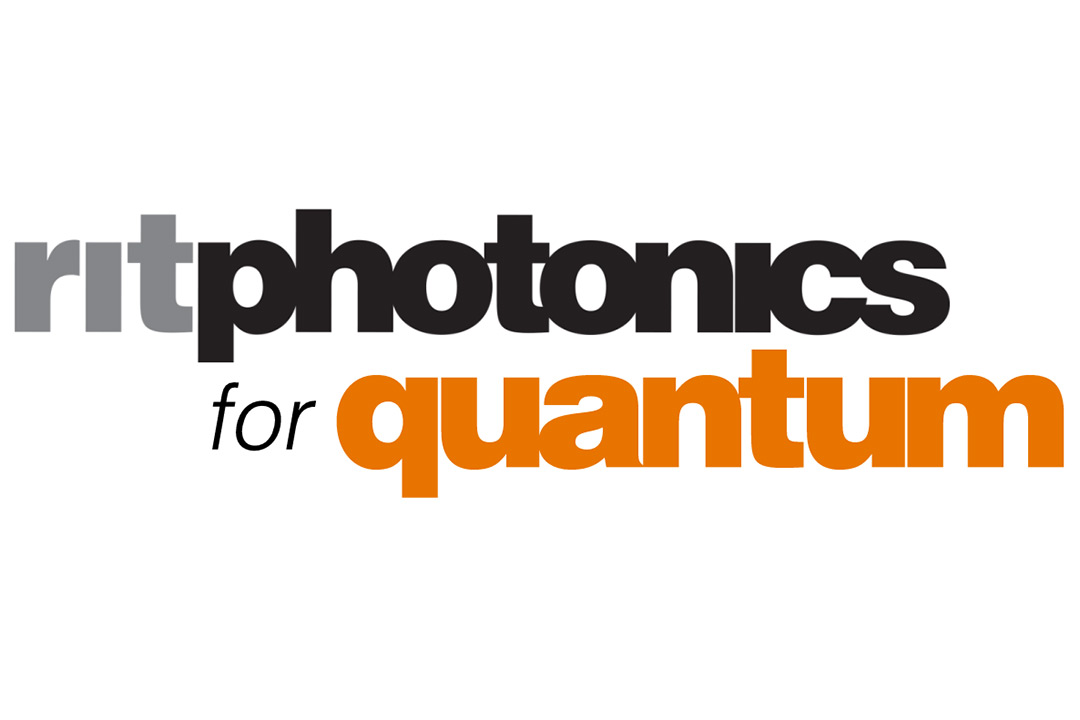Media invited to open meeting on the future of quantum technology
Leaders from NSF, NASA, NIST and Sandia National Laboratory to attend
An international conference on quantum science and technology is expected to draw more than a hundred leading scientists and engineers to Rochester Institute of Technology in January in response to a congressional imperative to accelerate quantum research.
The Photonics for Quantum Workshop will take place Jan. 23–25 on the RIT campus and will feature invited talks by leaders from national agencies and laboratories, industry and academia, including:
- Dominique Dagenais, National Science Foundation Program Director in Electronics, Photonics and Magnetic Devices;
- Barry Geldzahler, NASA Chief Scientist and Chief Technologist for Space Communication and Navigation;
- Carl J. Williams, acting director of the Physical Measurement Laboratory at the National Institute of Standards and Technology;
- Ed White, chair of the National Photonics Initiative;
- Scientists from emerging quantum computer companies Xanadu and PsiQuantum; and
- Quantum scientists from Massachusetts Institute of Technology, Stanford University and University of Ottawa
(To see a full list of confirmed speakers, go to https://www.rit.edu/fpi/photonics-quantum-pfq-workshop.)
Talks will focus on quantum technology development in five main applications—computing, communication, imaging, sensing and clocks. Additional talks and a panel discussion will address the need for a quantum workforce pipeline that will create new job categories, such as “quantum engineer.”
Recent advances in quantum science have leapfrogged existing capabilities in handling complex computational problems, providing communication security, and in enhancing navigation, imaging and other sensing technologies.
“Scientists discovered the basics of quantum physics roughly a hundred years ago, soon followed by practical applications and devices, such as transistors, microelectronics, LEDs and lasers,” said Don Figer, conference organizer and director of RIT’s Future Photon Initiative, one of the university’s signature research areas. “The new Quantum 2.0 technologies will fully exploit ‘quantum weirdness,’ properties of photons, trapped ions and superconducting circuits that appear to defy everyday intuition. The Photonics for Quantum workshop specifically focuses on using photons in Quantum 2.0 technologies.”
The Senate recently passed the $1.3 billion National Quantum Initiative Act to maintain U.S. scientific and technological leadership. The bill would create a 10-year program to advance quantum development and technological applications and develop the quantum standards and measures for global use.
Quantum mechanics is a branch of physics that manipulates the smallest amount of energy at the atomic and subatomic level. Different—or “non-classical”— rules govern matter at this scale, and scientists are using the strange, unintuitive properties created by quantum superposition and entanglement for the generation, transmission, detection and processing of information. Countries are racing to harness quantum capabilities, secure their networks and lead in emerging fields like artificial intelligence and synthetic biology.
In addition to RIT, the Photonics for Quantum Workshop is sponsored by ID Quantique, Princeton Instruments and TOPTICA Photonics Inc. To register, go to https://www.rit.edu/fpi/photonics-quantum-pfq-workshop.
For further information about the workshop, contact Robyn Rosechandler at admin@cfd.rit.edu.















